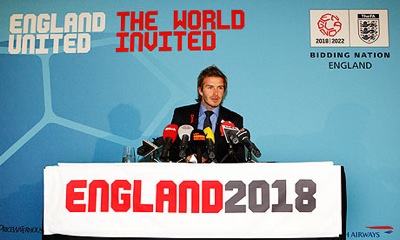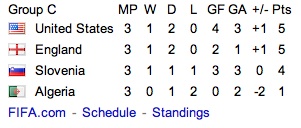
In about five hours England play Iceland in a Euro 2016 final 16 game. England may not lose this match, but they will almost certainly not win the tournament.
Here’s why you shouldn’t be surprised that the England national team aren’t more successful than they are.
Are you ready?
Here it is:
They’re actually not a global footballing power.
Now, this may come as a surprise, given that the guy who coached the soccer team at your high school had an English accent, as do many of the pundits who commentate on football games on TV. And yes, England is home to world’s most popular league.
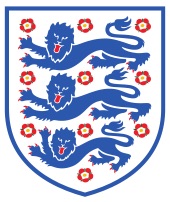
In addition, as British people may remind you, England invented the game and in 1966 won the World Cup — though it was at home in England and the team benefited from a dubious refereeing decision.
In the half century since then, however, they have won…not a single title.
The closest they came was making it to the World Cup semi-final in 1990 — a benchmark even the U.S. nearly achieved in 2002, when Gregg Berhalter* would have scored had it not been for a Torsten Frings handball that went unpunished.
But I digress.
Among the factors I have heard people give for England’s failure to win tournaments:
- The Premier League is too fast-paced and physically demanding
- There’s no winter break, so players can’t recuperate properly
- There are too many foreigners playing in the Premier League, so English players don’t get a chance to develop
- Highly paid players are more devoted to their clubs than to England
- The youth team coaching isn’t good enough, so players don’t reach their full potential
- Previous coaches, like Fabio Capello, were too strict or didn’t understand English culture or communicate with their players
- English players typically play their best in cold weather; they can’t win in the heat.
- They’re just so unlucky, with inevitable pre-tournament injuries
- Penalties! They’re a crapshoot!
- The English media are too hard on players, who then crack under the pressure of carrying a nation’s weight on their shoulders
- Wives and girlfriends coming along to tournaments distract the players
And I honestly wouldn’t be surprised if another reason is added to the list after this tournament: Brexit somehow distracted the players, or sapped the fans of their enthusiasm.
But, as some have pointed out, England only under-achieve if you think they should do better.
I don’t. They do about as well as you could expect.
When you think England, don’t think Brazil, Germany, or Italy.
Think Portugal.
In other words: pretty good, but not absolutely top-tier.
Let’s look at their Fifa world rankings since 1993:
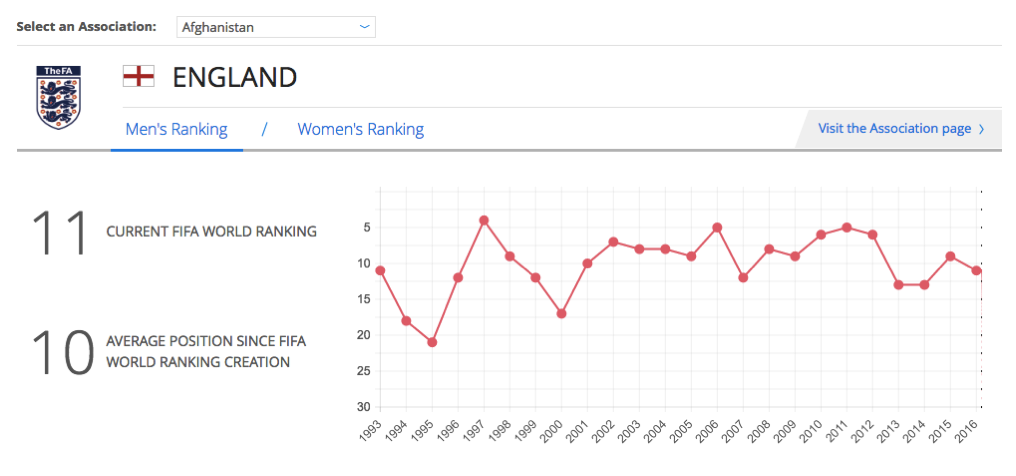
So, they’re now ranked 11th in the world, and their average ranking since 1993 is ten. That’s pretty good! But it doesn’t make them elite.
Other sides that have won the World Cup once, like England, include France, which won in 1998 and have an average ranking of nine, and Spain, which won in 2010 and has an average ranking of five. Both are better than England.
What about the big boys?
Brazil have won five World Cups. This is what their ranking — which averages out to three over the years — looks like:
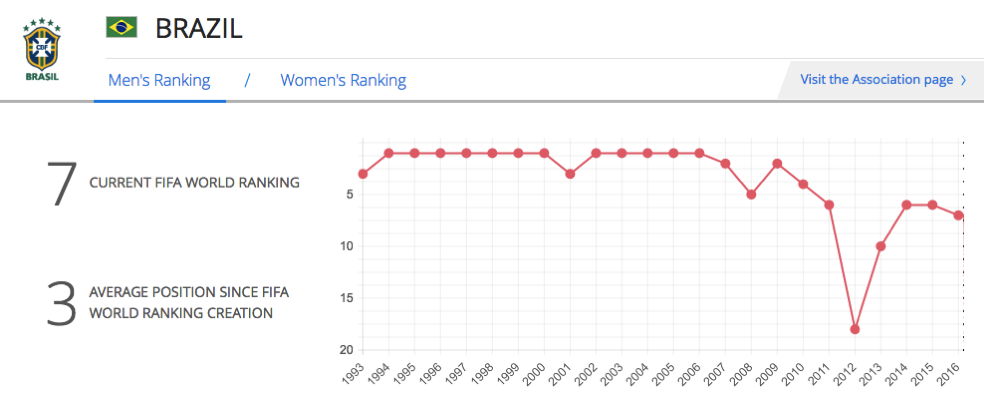
Germany (average ranking: five) and Italy (average ranking: seven) have won four times each. This is what their rankings look like:
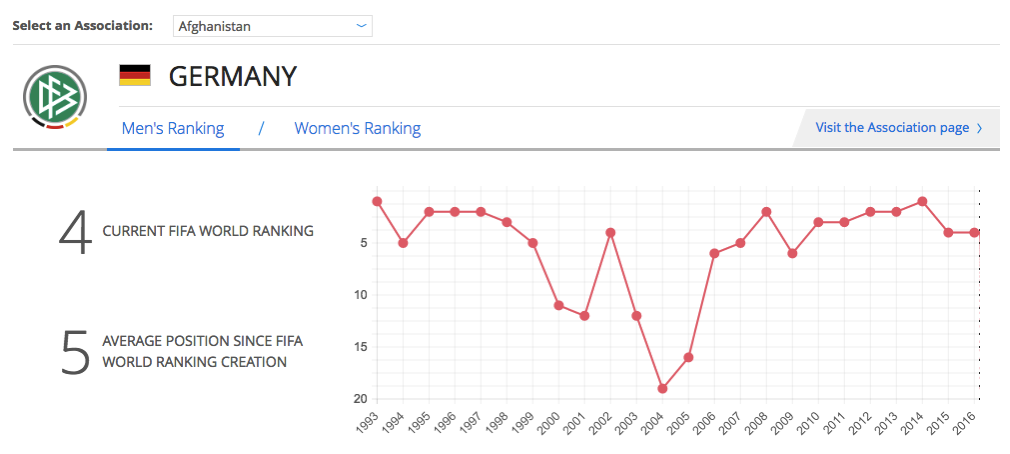
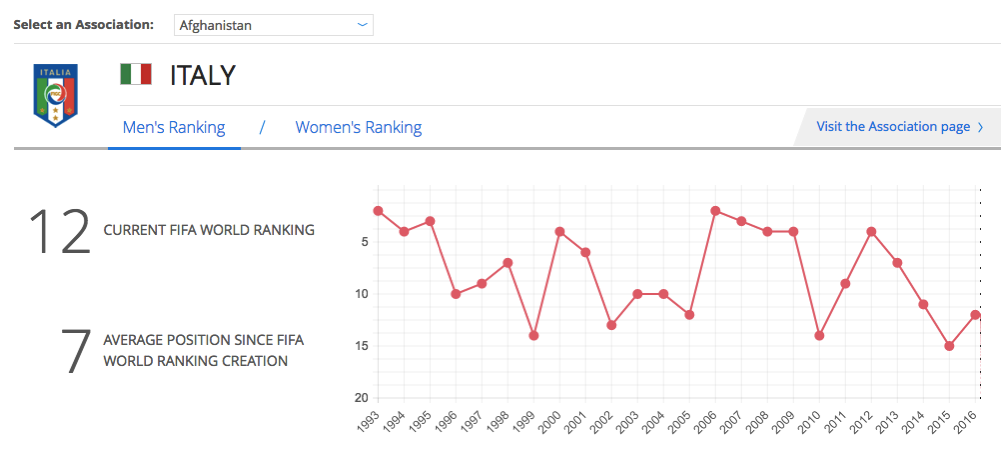
Portugal, which have an average ranking of 11, are much more like England:
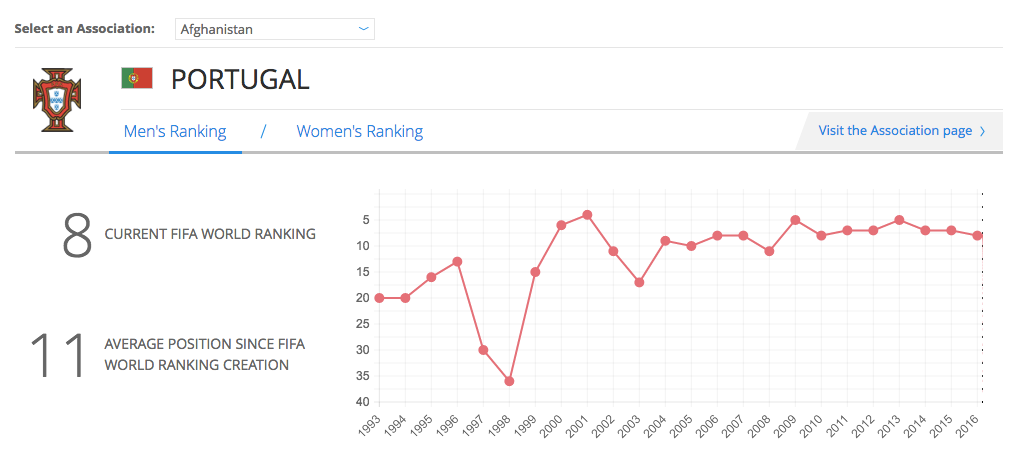
So, again: England don’t underperform. They perform as they always have.
They’re basically Portugal, except they won the World Cup fifty years ago. And they don’t have a Cristiano Ronaldo.
*My own personal footballing claim to fame: In a college game against the University of North Carolina, Gregg Berhalter scored a penalty on me. I dove the right way, guessing the left footer would blast it to my left, and came absolutely nowhere near it.


